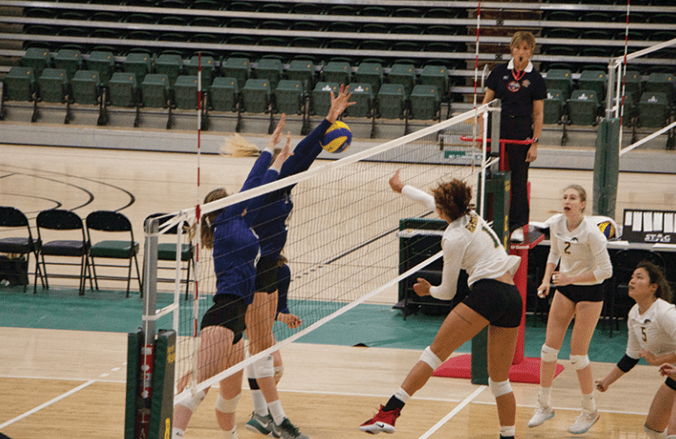
Outgoing vice-president of academics Maslany credits success to hard work
Martin Weaver
News Editor
A familiar face will soon be leaving the University of Regina campus.
George Maslany, vice-president of academics, will be “moving to a different place” and be absent from the campus before the start of the 2011-12 school year.
Maslany has been at the U of R since the 1960s, when he started out as an undergraduate student, and he was part of the university when it became independent in 1974. While he has experienced the lows, he has also experienced some of the highlights. Such highlights involved increased recognition for the U of R, which resulted in bigger grants.
“Seeing this campus evolve over time from being just a flat patch of prairie to how it’s grown to have the good fortune of being part of that particular growth, I found this really quite a great and rewarding experience,” said Maslany.
Once Maslany was done his undergraduate degree, he decided to attend the University of Regina for a graduate degree. He eventually became a member of the faculty of social work and earned his way to the top as VP of academics at the U of R.
Maslany, who has spent the last 38 years at the U of R, credits his hard work and dedication to previous jobs that he had in his childhood and as a teenager.
“I have been delighted to have this job and the reason I don’t regret this is because I’ve had jobs that were a lot harder and more taxing than the one I have here,” he said. “[It’s] a lot nicer to work inside an office than to work outside”.
Working manual labour outside in the dead of winter had a positive effect on his academic standings as well. The harder he found the job, the more he was motivated to earn a better living.
While Maslany admits that working in a university environment is much more comforting and less physically demanding than working in the train yard, he says his academic skills only began to thrive in graduate studies. What may surprise many is Maslany actually struggled during his undergraduate days.
“I don’t want to go into the details of how badly I did in my first year when I was exceedingly discouraged,” he said. “I thought, ‘Gee, I probably haven’t been working hard enough. I need to put my nose to the grindstone a bit more and work a bit harder.’”
He added that he found undergraduate studies a bit boring, but he just worked through it and eventually did well enough to get into grad school.
“It’s in grad school where really everything took off for me,” said Maslany. “After that, I couldn’t imagine anything I would more like to do than what I actually got in to do.”
He said he’s seen students get discouraged and drop out who were in better academic standing than he was. He wishes that they would sometimes give it another chance.
“If you don’t succeed at first just keep on trying,” said Maslany. “If other things end up being overwhelming, just keep on hitting them again and again.
“If opportunities don’t present themselves, then keep on trying again. Life isn’t just baseball with three strikes and you’re out. Go for a fourth strike, fifth strike, sixth strike, or seventh strike, if necessary and you will eventually make [something] of it. Persistence overall will go a long way in terms of greater success”.
What Maslany had to keep himself going was the work ethic that allowed him to get the grades for graduate studies. When asked about his career highlights, there was one thing that stuck out the most.
“The most important highlight I would say was getting a job here,” he said. “The second highlight was retaining the job for as long as I have.”
Maslany doesn’t feel any regrets and sticks by all of his decisions he has made during his career, even though there have been some hard times. He hopes that his colleagues supported him as well.
“I hope they say nice things about me,” he said. “I hope nobody has ever questioned my dedication to try and achieve what’s best for this institution. I have always felt myself committed to having that happen, but haven’t been necessarily successful in the end always.”
Barb Pollock, VP of external relations at the U of R, had the opportunity to work with Maslany and credited his hard work.
“George was a great colleague,” he said. “He kept the portfolio going. He wasn’t a babysitter. He will be missed.”
Once Maslany leaves, he will not be completely gone from the university. He plans on taking his first sabbatical leave since 1985 and then coming back as a prof in the research methods area and other areas related to social work. He finds the direct contact with students rewarding and that is something that he has missed.
“I’ll miss the people,” said Maslany. “I really liked everyone I worked with here. I really enjoyed teaching.
“It delighted me to see my graduate students and how they progressed from just having ideas to being able to translate those ideas into researchable questions and then doing research on those questions.”.
While he’s been here a long time, he hopes to stay for even longer.
“I’m not finished yet,” he said. “I’m not dead. I’m still very much alive. I have more than a little bit of tread left in my tires.”
Maslany may have a different position on campus when he comes back, but he says he will still be involved with students – hoping he can teach his students an important message that he credits to his own success.

![[1A] Maslany (Small)](http://www.carillonregina.com/wp-content/uploads/2011/08/1A-Maslany-Small.jpg)








